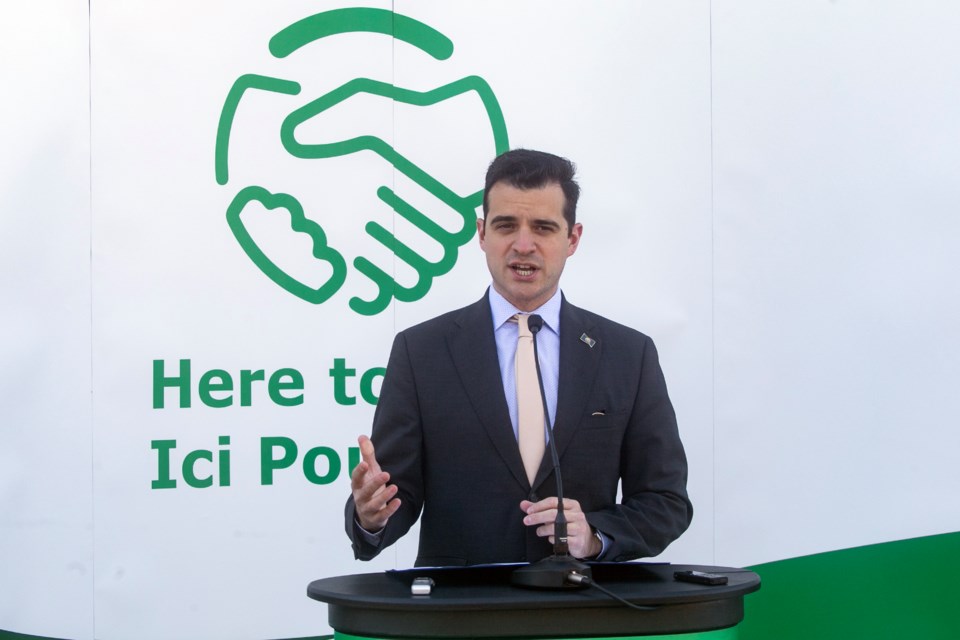While some Ontario mayors are asking the premier to use special powers to allow for encampments to be cleared and force some people into treatment, Sault Ste. Marie's mayor says he will not join in that effort.
Earlier this week, Premier Doug Ford invited mayors in the province to ask him to enact the notwithstanding clause to pass legislation to address homeless encampments while shielding them from legal challenges for violating the Charter of Rights and Freedoms.
The aim would be to allow for the disbanding of homeless encampments and to force some of those displaced into involuntary mental health treatment.
By Thursday, more than a dozen mayors took the premier up on his offer, including the mayors of Barrie, Brampton, Brantford, Cambridge, Oakville, Oshawa, Pickering, St. Catharines, Sudbury, Guelph, Chatham-Kent, Clarington, and Windsor.
The notwithstanding clause prevents a court from declaring that legislation is of no force or effect when it’s inconsistent with the Canadian Charter of Rights And Freedoms.
In response to an encampment eviction case in Kitchener-Waterloo last year, Justice M.J. Valente said clearing encampments without sufficient shelter spaces would infringe on the constitutional rights of those living there.
This sets a precedent which effectively means that erecting encampments would be allowed “when the number of homeless persons exceeds the number of available accessible shelter beds in the region,” according to Valente’s ruling.
The mayors’ letter seeks to nullify this ruling via the notwithstanding clause.
The letter formally requests the use of the clause, if necessary, to pass laws to ban homeless encampments. It also asks the province to create laws to make repeated trespassing a criminal offence.
Reached on Friday by email, Sault Ste. Marie Mayor Matthew Shoemaker said he does not support the use of the notwithstanding clause for this instance.
"Governments should not be able to opt out of constitutional protections," said Shoemaker, who is a lawyer by trade.
He said measures to address encampments and programs for addictions need to be enacted and operated in accordance with the constitution.
"Nobody would suggest that difficulties finding staff to work elections should mean we’d cancel the constitutional right to vote, and the same goes for every other constitutional right," said Shoemaker. "My opinion is actions that are constitutional can be, and must be, found to the challenges we face."
Connie Raynor-Elliott, founder of SOYA, said she does not support the use of special powers to clear encampments. She said even if you could force people into treatment, there is currently nowhere to send them that doesn't have a waiting list.
SOYA, which stands for Save our Young Adults From Drug Abuse, is a street-level organization that assists people who are dealing with addiction and the effects of poverty.
"If you have magic dollars that you can create this forced treatment centre, put them into a treatment centre so people who are on the wait, for months and months, can go and then put some money into after care," said Raynor-Elliott.
She said the day treatment program currently being offered through Sault Area Hospital is not intended for the most acute cases of addiction and does not address housing needs.
"I keep sending people out of town out of town," said Raynor-Elliott of the lack of treatment options in the Saut.
Through the justice system, Raynor-Elliott has seen people who are forced into seeking treatment for mental health and addiction issues.
"It doesn't work," she said of forced treatment. "They have to want it and after treatment you can't just put them back on to the street."
As far as people living in encampments, Raynor-Elliott said many of those people are banned from the shelters and there is nowhere else to put them.
"Where do they go? said Raynor-Elliott. "They were banned for God's sake."
— with files from Sudbury.com
